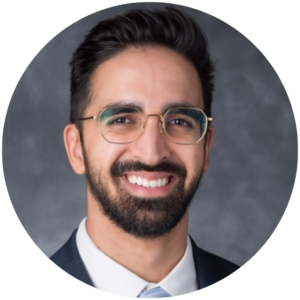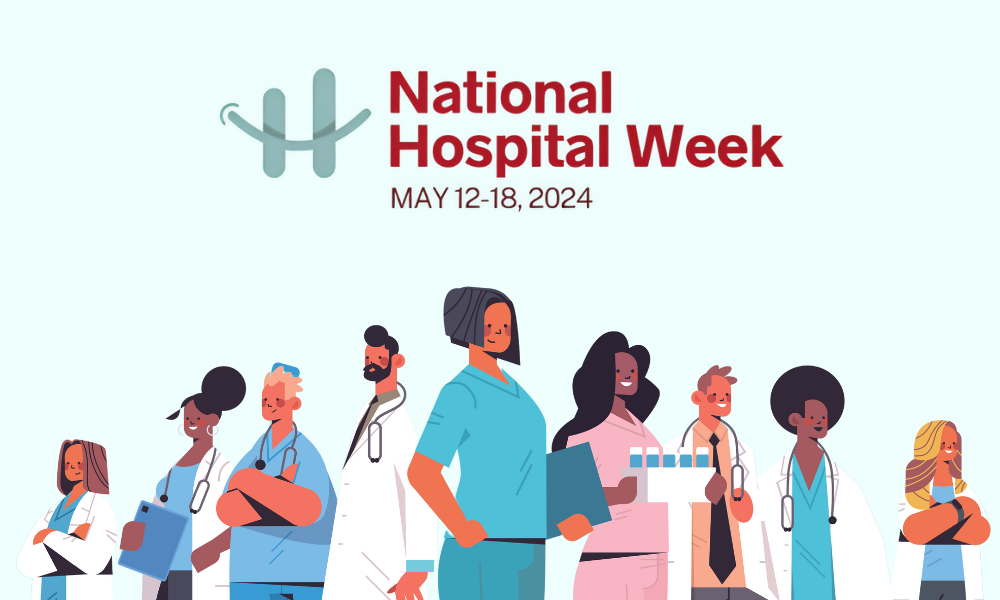On the Road Again
This a BIG week in the world of locum tenens—and, no, that’s not hyperbole. At least not for us, the watchdogs of locum tenens, fingers on the pulse of the most successful healthcare staffing segment of the past two years. At Locumpedia, we are all aboard the hype train. On Wednesday, we’re riding that proverbial train all the way to Charlotte, North Carolina, for the annual NALTO/NAPR Convention.
We’re looking forward to seeing old colleagues, meeting potential clients, reuniting with friends, and talking to providers and staffing agency reps. To kick off the convention, we’re announcing the 2023 Providers of the Year Awards winners, so keep an eye out for that. And, if you happen to be in Charlotte, stop by and say, “hey!”
Survey Reveals Travel Clinicians and Locum Tenens Providers Happier Than Permanent Peers
A recent survey conducted by Barton Healthcare Staffing and its affiliate, Barton Associates, revealed part-time and full-time locum tenens providers are 17% more likely to be happy in their current roles than in previous permanent jobs.
Impressively, 90% of travel clinicians and locum tenens providers across the survey, from a broad range of specialties, said they were content in their position. Only 75% of permanent healthcare staff surveyed expressed the same sentiment.
The survey further illustrates a disparity in work-life balance satisfaction between the two groups, with travel and locum tenens professionals 32% more likely to express satisfaction with their work-life balance than permanent staff. The report states approximately 80% of locum tenens and travel clinicians are satisfied with their work-life balance, and only 60% of permanent staff shared this view.
The survey also shows how compensation is perceived among locum tenens providers, revealing travel and locum tenens professionals are each 9% more likely to feel fairly compensated for their work than their peers in permanent roles.
The majority of providers surveyed agree on some things, though. Both permanent and locum tenens providers share common concerns about the state of the healthcare industry:
- 96% are concerned about whether healthcare facilities can maintain adequate staffing levels in 2024.
- 91% worry about their workload as a healthcare provider/clinician in 2024.
Your Locums Prescription
Medicus Offers Tax Tips for Locum Tenens Providers
As independent contractors, locum tenens providers have the advantage of flexibility and higher compensation rates, allowing them to work across many healthcare settings and states. Medicus Healthcare Solutions offers tips to help providers stay organized and minimize stress during tax season.
Medicus says knowing the difference between W-2 and 1099 employees is something all locum providers need to understand before tax time. Taxes are automatically withheld from W-2 permanent employees, while 1099 independent contractors receive full pay without deductions, requiring them to follow a different tax filing process. Providers who work locum tenens and full-time positions will receive both W-2s and 1099s for tax filing.
Medicus recommends partnering with a qualified tax professional familiar with locum tenens tax plans and state laws. Tax deadlines vary for permanent and temporary providers, and missing quarterly tax payments as an independent contractor can result in penalties and interest. Medicus also provides tips to help providers identify deductions and credits that may significantly reduce tax burdens.
Hayes Locums Outlines What to Look for in a Staffing Agency
What should each provider look for in an agency? The right locum tenens staffing agency isn’t just about finding matches. Providers need a partner they can trust. Hayes Locums provides four key qualities every provider should look for in an agency. Providers should choose:
- A staffing agency with a reputation for being reliable and willing to work with providers at every stage, from application to assignment and beyond;
- An agency offering top-notch credentialing and licensing support to ease the paperwork burden;
- An agency that is transparent and has a direct line of communication with providers and facilities,
- An agency that personalizes each placement and creates a uniquely “tailored experience.”
The Benefits of Locum Tenens Out of Residency
Physicians fresh out of residency might consider locum tenens as a career path because it offers a variety of work settings, schedule flexibility, and higher pay. Locumstory recently interviewed physicians who worked in locum tenens right out of residency. They also looked to recruiters for advice on how to best prepare physicians for a locum career.
Their first tip: “do your due diligence,” which means performing extensive research and questioning locum companies. Physicians also suggested thoroughly researching the tax logistics and management of benefits—such as health insurance or retirement—typically handled by employers.
Recruiters also said that in order to make locum tenens a viable career, providers need to be open to gaining as much relevant experience as possible. The way to do that is by being open to opportunities in any location and on any schedule. Despite some challenges discussed in the article, post-residency locum tenens can often be liberating, alleviating the pressure physicians may feel to rush into full-time work. Instead, they can pursue locum opportunities and gain valuable experience, which they can leverage into a permanent placement when the time is right.
Locums Providers at the Forefront of Eliminating Maternal Deserts
Maternal deserts, or areas lacking maternal care facilities and providers, pose significant challenges to maternal and infant health in the US. The US has the highest maternal death rate among high-income countries, and the CDC reports that a substantial portion of those pregnancy-related deaths are preventable.
A LocumTenens.com report reveals how decreased access to maternal care in rural regions is due to limited resources. While most states have maternal deserts, there’s a notable concentration in the Midwest. According to the report, the issue “requires collaborative efforts at various levels, involving governments, healthcare organizations, and individual clinicians.” Strategies to address maternal deserts include expanding community-based care models and confronting workforce challenges.
Healthcare organizations and providers play a pivotal role in dealing with these maternal deserts by mobilizing locum tenens doctors to fill healthcare provider gaps in affected areas. Telehealth solutions also promise to increase maternal care access. While in-person care remains crucial, telehealth can enhance patient education and support. Various sectors can unite to work toward eliminating maternal deserts, ensuring equitable access to high-quality maternal care.
Physician Wellness Retreat
Hospitalists See Slight Decrease in Burnout This Year, Says Medscape Report
Becker’s Hospital Review reports that Medscape’s Burnout & Depression Report 2024 revealed a slight decrease in burnout and depression among hospitalists compared to the previous year. In 2023, 36% reported burnout, 8% reported depression, and 22% experienced both, but the latest survey shows declines to 33%, 5%, and 16%, respectively. While historically more women than men reported burnout, the latest data showed a narrowing gap, with 47% of men and 52% of women reporting burnout in 2024, compared to 53% and 66% in 2023.
Burnout is chronic for some, with 35% reporting feeling burnt out for at least two years. They said the factors contributing to prolonged burnout included excessive tasks, lack of respect from colleagues and leadership, long shifts, low pay, and an overall lack of respect from patients. Even with the decrease, 46% of hospitalists feel their institutions need to address burnout more adequately.
Doctors Optimistic About AI’s Ability to Improve Burnout
A recent survey commissioned by Athenahealth revealed over 90% of US physicians regularly experience burnout, citing administrative tasks as a primary cause. Physicians spend an average of 15 extra hours per week on administrative work, often outside regular hours, leading to decreased in-person time with patients and overwhelming communication demands. The survey said physicians are also aware of the challenges within their organizations, and issues such as poor staff retention and financial instability also affect them.
Despite the obstacles, 83% of doctors believe that AI could help alleviate these problems by streamlining administrative tasks, improving diagnostic accuracy, and identifying patterns in patient data. Concerns about AI’s potential to diminish the human touch in healthcare persist among physicians, but twice as many of the survey respondents view AI as part of the solution rather than the problem.
While AI is not a quick fix for healthcare challenges, the survey suggests it instills hope for the future among some physicians. The survey says that approximately 37% of AI optimists believe healthcare is progressing in the right direction.
Doctor’s Notes
Healthcare Leaders Face Financial Pressures Amid Surgeon and Anesthesiologist Shortages
Healthcare leaders are grappling with recruitment and retention issues for surgeons, anesthesia providers, and operating room staff, which are crucial for maintaining revenue and continuing to provide quality care. Anesthesiologists are in high demand, and projections suggest a shortage of 12,500 by 2033. The report claims nearly 30% of anesthesiologists are predicted to leave the field, and over 17% are nearing retirement.

Dr. Adeel Faruki, an Assistant Professor of Anesthesiology at MD Anderson Cancer Center, anticipates significant shifts in anesthesia practice, urging ambulatory surgery centers (ASCs), hospitals, and academic institutions to adapt creatively to address reimbursement changes and rising employment costs.
Docs Question if the Traditional Physical Exam is Necessary
According to a Becker’s Healthcare article, some physicians question the necessity of the annual physical exam because of long wait times and inconclusive evidence of its benefits. While traditional exams include standard checks, more practitioners have shifted their focus toward personalized health goals and lifestyle habits.
In the article, Yul Ejnes, MD, emphasized the need to reassess the effectiveness of current delivery methods. The proposed approaches to annual exams include, among other things, pre-visit surveys and selective physical exams to prioritize patient concerns.

Orthopedic Surgeons Say Lack of Sufficient Anesthesia Staff Compromises Patient Care
The ongoing shortage of anesthesiologists is significantly impacting orthopedic practices across the country. Because of the scarcity, surgeons face challenges in scheduling cases in facilities like hospitals and surgical centers, which leads to delays in patient care, particularly for trauma and acute injuries.
Becker’s Healthcare interviewed three orthopedic surgeons to answer the question, “How has the anesthesia shortage impacted the orthopedic industry?” The surgeons said to cope with the shortage, facilities often contract unfamiliar anesthesia teams, sometimes resulting in weaker outcomes and operational difficulties during surgeries. Financially, surgery centers are also feeling the strain, as canceled procedures due to insufficient anesthesia mean decreased revenue and reduced access to patient care.
Some practitioners attribute the problem to reimbursement issues rather than a lack of available anesthesiologists, while others say that internal anesthesia groups are needed to ensure the smooth operation of ambulatory surgery centers. Close collaboration between surgeons and anesthesiologists, particularly in outpatient orthopedic surgery, is essential for the safe and efficient functioning of ASCs.









